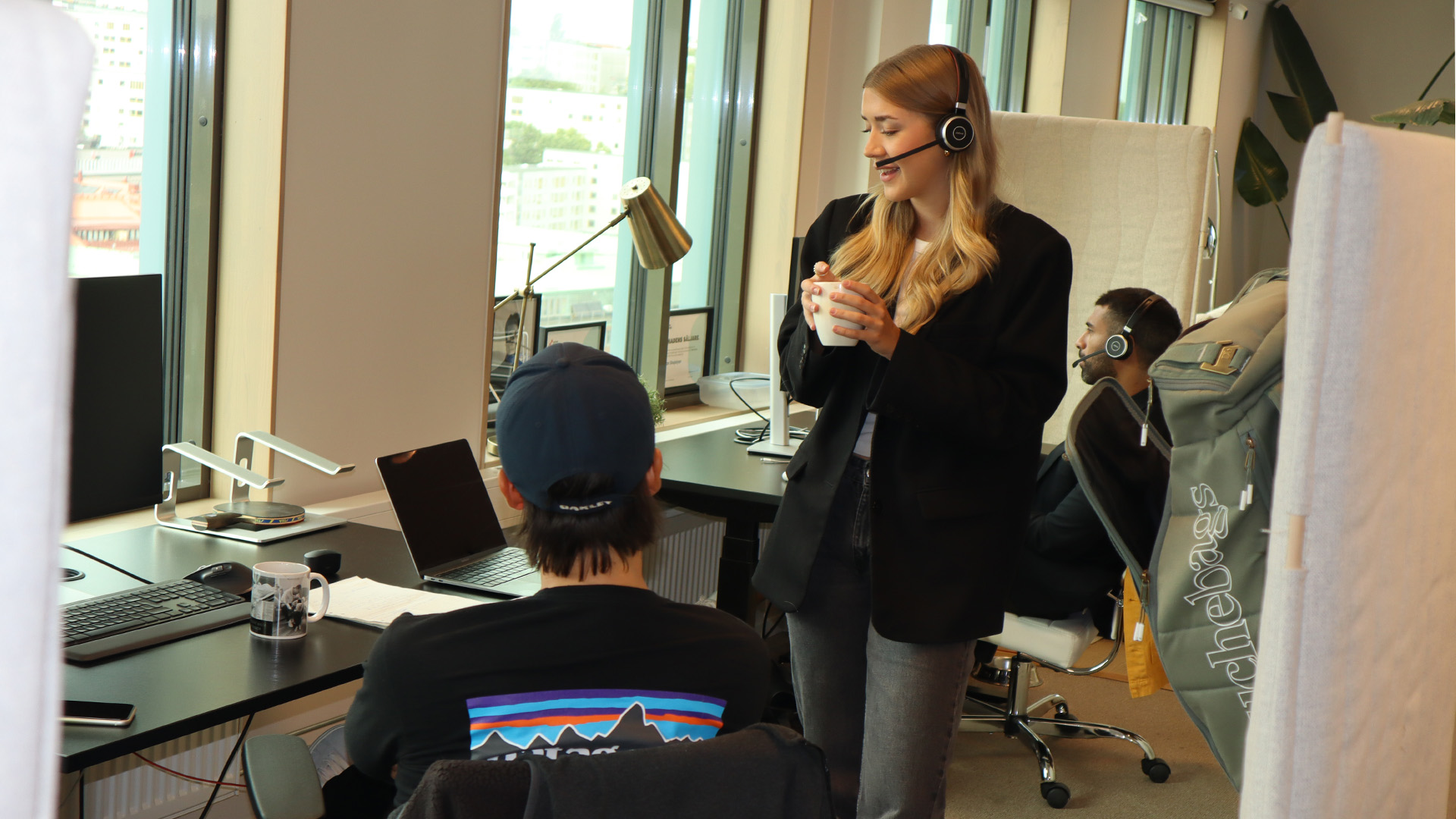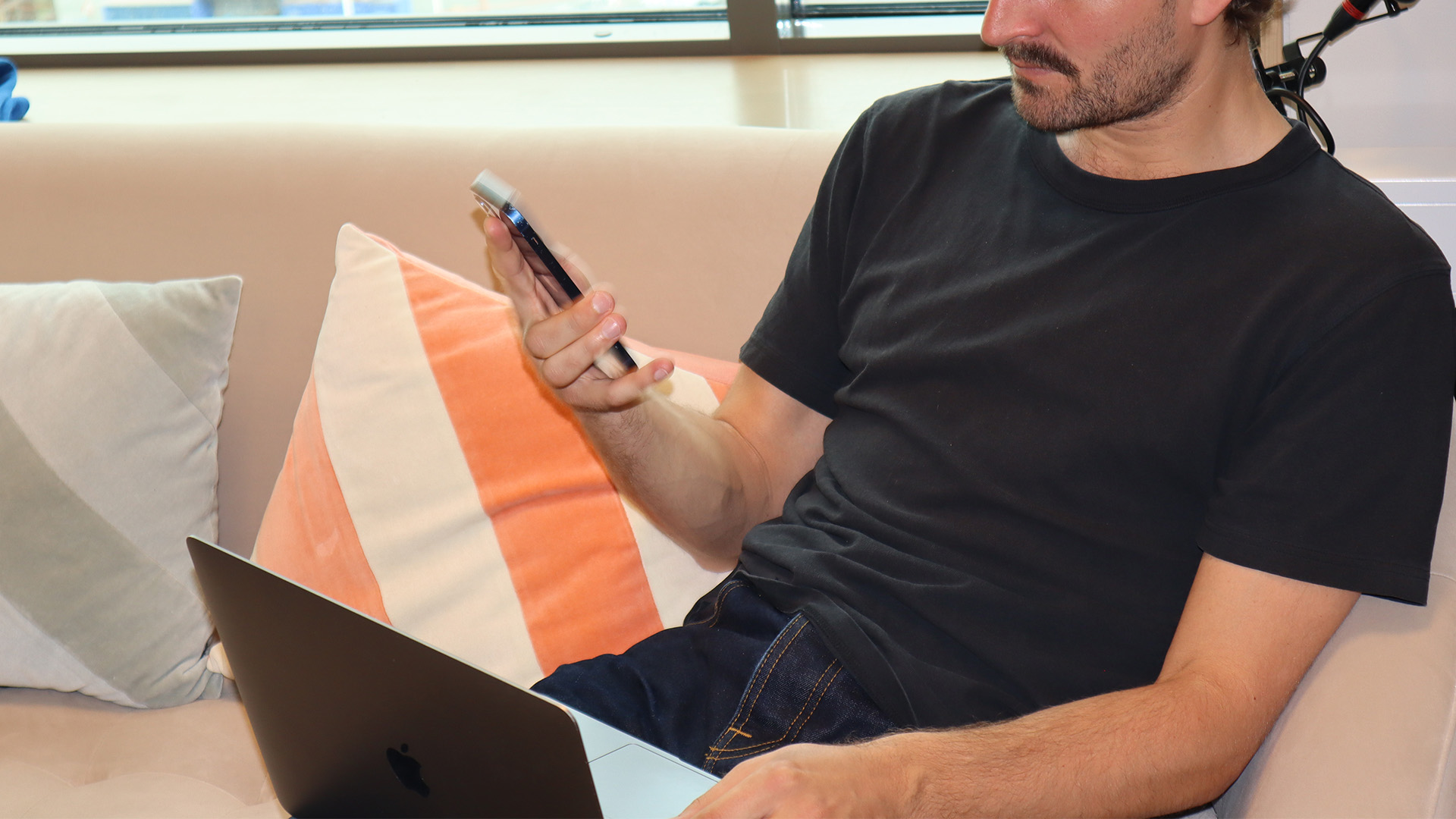Generation Z, who are they?
Generation Z are individuals born between 1995 and 2012, or sometimes they also count 1997 to 2012. They are individualists, a digital generation that has been able to tailor their interests and dreams, thanks in large part to social media. The “same time, same channel” principle no longer applies to this generation, they have not had to adapt in the same way. As”Digital Natives“, meaning that they are the first generation to grow up with the internet as a natural part of everyday life, Generation Z has its own distinct style and preferences.
The Podcast SMW TALK has had the privilege of being visited by Linda Åhnbrink, process manager at areas of expertise, part of Göteborg Region. You can view the full episode here: SMW TALK Generation Z or continue reading for an in-depth understanding of Gen Z and the recruiting landscape of the future.
Linda begins by emphasizing that although we speak of Generation Z as “a generation”, it is extremely important not to generalize them.
“They represent a whole generation with significant differences and are actually the most heterogeneous generation ever” — Linda Åhnbrink
Linda explains that characteristic of Generation Z is willingness to contribute to something greater, they are socially conscious and not afraid to say what they think. Broadly speaking, one might describe these individuals as incredibly driven, but they also expect commitment in exchange.
Why is it so important to understand Generation Z?
By 2025, Generation Z is expected to be over a quarter of the global workforce, which according to LinkedIn's recently published report Future of Recruiting 2024 raises new questions as many of today's recruiters feel unsure how to attract and retain this young talent pool. In fact, recruiters are even suggesting that this is one of the biggest challenges in talent acquisition going forward. We have long talked about it being a”worker's market“, and in light of this, it is now more crucial than ever that we understand the candidate journey that our future talents undergo to ensure the supply of skills going forward.
So, what is Generation Z looking for in a workplace?
Diversity and Inclusion. Diversity and inclusion are ethos and values that Generation Z values highly. According to Linda, a workplace characterized by diversity and inclusion gives companies the opportunity to show that they accept people as they are — that they accept each individual just as they are. It also creates a security where you feel free to be yourself at work, with a social and psychological security. Linda points out that the requirement for such safety factors that extend beyond just job security is something that distinguishes Generation Z from previous generations.
This becomes especially significant because 80% of Generation Z would not seek a job in a workplace that does not share their values.
Development. If you want to attract and retain Generation Z, then you need to be able to offer personal development. They assume that a workplace can answer the question “What's the next step?” As an employer, you can also live up to your praise.
“We know that Gen Z really values learning and development opportunities. If you're not investing in their growth, you're not going to be able to hold onto them. They will prioritize their own career development over any long-term commitment to an organization“— Nicky Vallelly of Google Deepmind
Work-life balance. Work-life balance is a crucial issue for Generation Z who are taking a step away from work structures that do not prioritize mental well-being.
The digital era has expanded the physical boundaries of the workplace, creating new challenges for the employee as well as the employer. According to Linda, Generation Z's digital upbringing may have made them more likely to set boundaries in the new digital work environment, something they are significantly more skilled at than many others. In this context, Linda also dismisses a common myth about Generation Z, namely that they are lazy. According to her, they are not lazy, but rather boundary-setters. She raises the question: “Do we live to work or do we work to live?” which she believes is a central tie point for Generation Z.
“It is not based on egoism, as many might think when they say it is an individualistic generation. Rather, it's about them not wanting to feel bad, whether at work or at home. Mental well-being is an important issue that characterizes this generation, and in this respect managers and leaders play an important role.” — Linda Åhnbrink
It is there of not surprising that 77% of Generation Z prioritized work-life balance as one of the most important benefits of an employer today.
Engaged leadership. Through her work, Linda often interacts with individuals from Generation Z and she describes that there is a concern, a concern about poor leadership. Generation Z makes higher demands and is more likely to actually change jobs than previous generations. In this context, Linda believes that leadership is hugely important. According to Linda, Generation Z wants leaders they can respect, someone they want to follow and can evolve with.
Authenticity. No more empty words of praise -- now it's up to proof! And according to Linda, it doesn't have to be perfect. Generation Z are tired of the perfect facade being showcased on Instagram. Generation Z is looking for authentic leaders and companies who live up to the expectations they create. Linda makes the analogy with Tinder — you don't want to be surprised by something that's not right.
Linda emphasizes that it is important to note that Generation Z is not a homogeneous group and that the idea that companies should tailor products and services to suit the unique needs of all individuals is outdated. She suggests that it does not work in practice, nor is it an authentic claim.
“Instead, think about: Who are you? and communicate your values. It is authentic. “— Linda Ahnbrink
No one can have it all, so it's important to communicate clearly what's actually being offered.
How do we engage Generation Z?
“Give and you shall receive” Linda believes that is the basis for engaging Generation Z. She clarifies that giving doesn't just have to involve monetary benefits or gifts. What Generation Z wants is more relational outreach, emotional support and personal coaching and development. That's according to Linda A and O for creating engagement.
Employer Branding and Generation Z
Given the challenges faced by recruiters globally when it comes to attracting, recruiting and retaining Generation Z, it's no surprise that employer branding will remain a critical priority in the coming year based on the findings of LinkedIn's report Future of Recruiting 2024
Linkedin reports that for the second year in a row, employer branding is expected to be the recruitment function that receives the biggest increase in budget. Whole 57% of the TAs who participated in LinkedIn's report predict an increased budget for employer branding in the coming year.
How do we create content that attracts Generation Z?
Generation Z prefers to communicate through digital channels such as social media. Linda highlights the importance of storytelling and video formats to engage Generation Z by pushing emotional values. She also stresses the importance of collaboration and encourages companies to offer internships, graduate work and attend trade shows.












